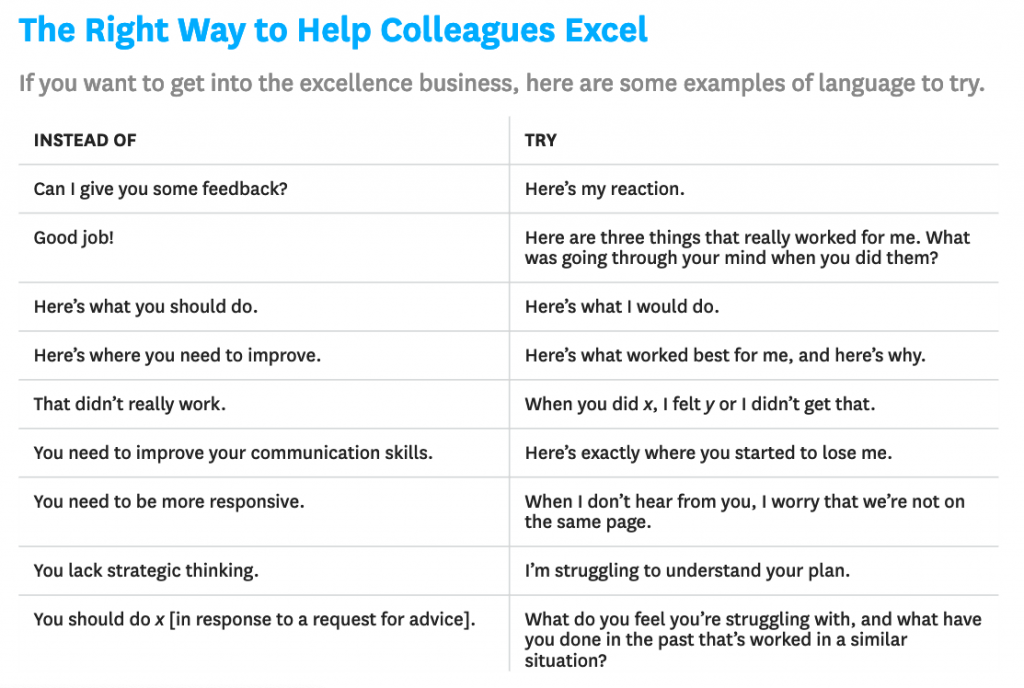If we continue to spend our time identifying failure as we see it and giving people feedback about how to avoid it, we’ll languish in the business of adequacy.
We humans do not do well when someone whose intentions are unclear tells us where we stand, how good we “really” are, and what we must do to fix ourselves. We excel only when people who know us and care about us tell us what they experience and what they feel, and in particular when they see something within us that really works
This article: The Feedback Fallacy offers an in-depth analysis of feedback: what works, what doesn’t, and what we can do to reframe the conversations we have regarding feedback.
How might this apply to the way we give, receive, and seek feedback on our teaching practice?
How might we apply some of the ideas and principles mentioned to the way we give feedback to students?
